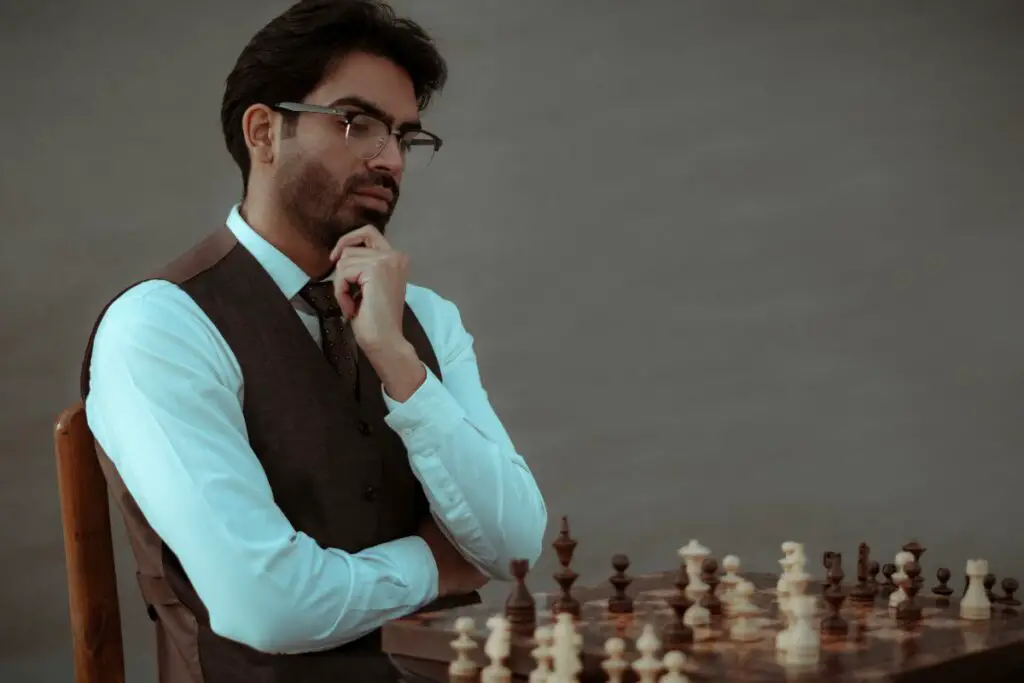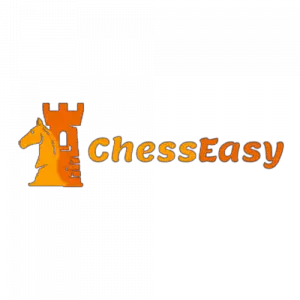From personal coaching experiences to scientific research, the debate on the intelligence of chess players has always been a topic of intrigue. Does the skill of manoeuvring pawns, knights, and kings on a chessboard truly reflect the intelligence of the player?
Chess players often showcase enhanced cognitive and problem-solving abilities. The intricate nature of the game has led many to believe that chess and intelligence are intrinsically linked. Various studies bolster this belief, indicating a positive correlation between chess play and cognitive development.

The ensuing sections will provide a deeper insight into the cognitive strengths of chess players, shed light on the scientific basis of this relationship, address common myths, and conclude with a synthesis of research and personal experience.
What Cognitive Skills Do Chess Players Develop?
Chess game sharpens specific cognitive skills. As a coach, I’ve seen beginners evolve, noticing a marked improvement in their memory. The need to remember opening sequences, middle-game strategies, and end-game tactics demands an acute sense of recall.
Spatial reasoning is also enhanced. I’ve often told my students to “visualize the board” – to think several moves ahead, considering the holistic interplay of pieces. This requires sophisticated spatial analysis.
Moreover, chess hones problem-solving skills. Every opponent’s move is a new problem, a challenge demanding a strategic response, often many moves in advance.
Science Behind Chess and Intelligence
A pivotal question arises: Are intelligent individuals naturally drawn to chess, or does the game cultivate intelligence? Research suggests a symbiotic relationship.
One study, published in Nature in 2004, demonstrated heightened brain activity in the frontal and parietal lobes among chess players, particularly those who began at a young age. These brain regions are linked with problem-solving and spatial reasoning.
Another significant study showcased that young players, after engaging in consistent chess training, exhibited a notable boost in their IQ scores within a few months. However, while chess strengthens particular intelligence facets, it shouldn’t be viewed as a blanket metric for gauging comprehensive intelligence.
Debunking Myths: Chess Brilliance and General Intelligence
In my coaching journey, I’ve encountered prodigious talents in chess who are average in other cognitive domains. Chess intelligence is domain-specific. A grandmaster’s brilliance on the board doesn’t guarantee genius in, say, mathematics or linguistic endeavours.
One of my most talented students, for instance, could predict opponent moves with uncanny precision but struggled with basic algebra. This highlights the uniqueness of chess intelligence, distinct from other intellectual realms.
Many studies also prove that chess players show better skills in mathematics. Chess helps to improve problem-solving skills, deep calculation, memory skills, pattern recognition, logical thinking skill, geometric skill, and analytical skills.
Conclusion
Do chess players possess unique intelligence? Research and personal coaching experiences affirm that they excel in areas the game intensely exercises: memory, spatial reasoning, and problem-solving. But intelligence is diverse and multifaceted. While chess undoubtedly refines particular cognitive facets, it doesn’t render a player universally genius. Chess, in its essence, showcases the human brain’s marvel and how specialized pursuits can uniquely shape our cognitive prowess.
